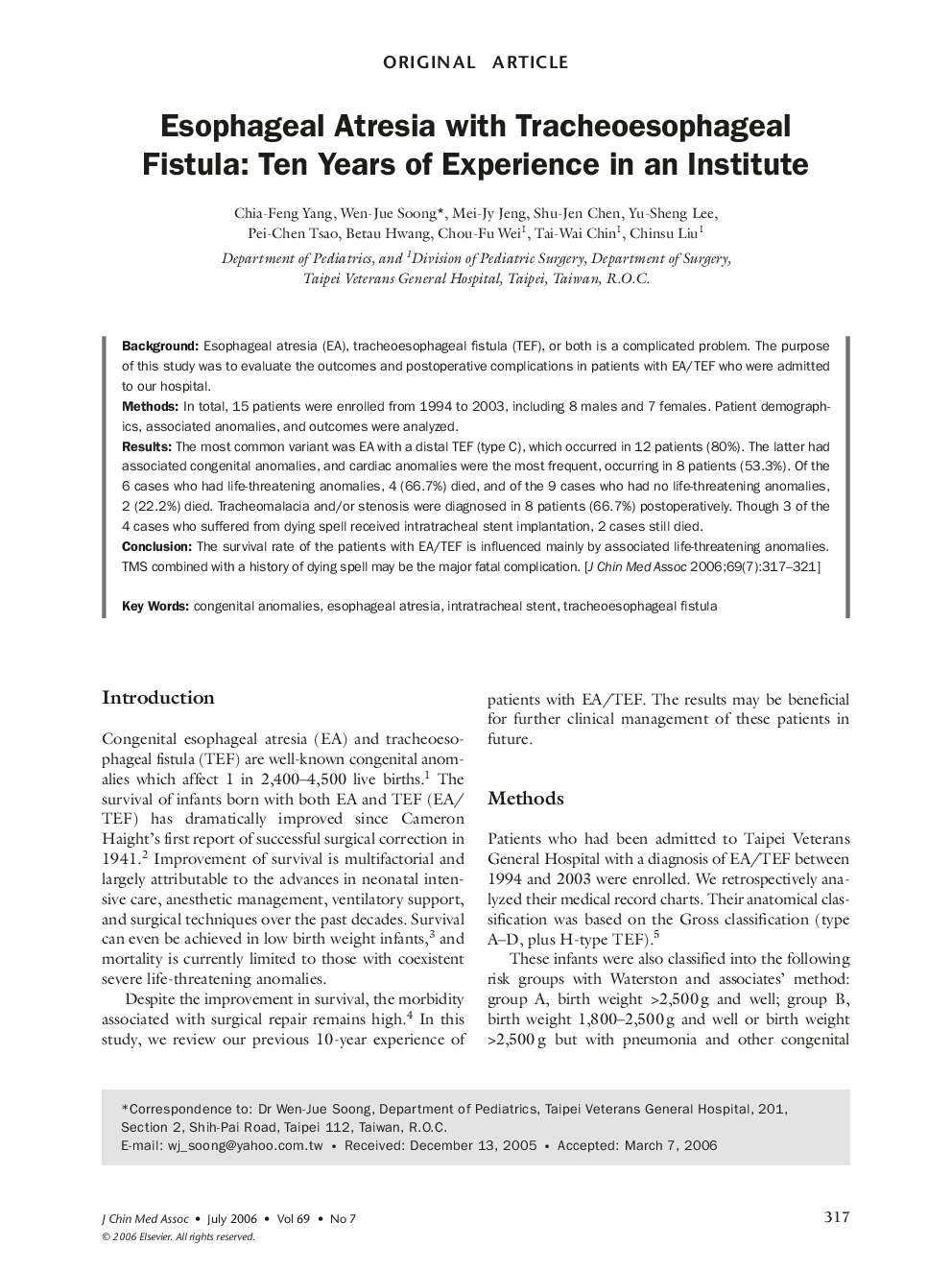| کد مقاله | کد نشریه | سال انتشار | مقاله انگلیسی | نسخه تمام متن |
|---|---|---|---|---|
| 3477587 | 1233343 | 2006 | 5 صفحه PDF | دانلود رایگان |

BackgroundEsophageal atresia (EA), tracheoesophageal fistula (TEF), or both is a complicated problem. The purpose of this study was to evaluate the outcomes and postoperative complications in patients with EA/TEF who were admitted to our hospital.MethodsIn total, 15 patients were enrolled from 1994 to 2003, including 8 males and 7 females. Patient demographics, associated anomalies, and outcomes were analyzed.ResultsThe most common variant was EA with a distal TEF (type C), which occurred in 12 patients (80%). The latter had associated congenital anomalies, and cardiac anomalies were the most frequent, occurring in 8 patients (53.3%). Of the 6 cases who had life-threatening anomalies, 4 (66.7%) died, and of the 9 cases who had no life-threatening anomalies, 2 (22.2%) died. Tracheomalacia and/or stenosis were diagnosed in 8 patients (66.7%) postoperatively. Though 3 of the 4 cases who suffered from dying spell received intratracheal stent implantation, 2 cases still died.ConclusionThe survival rate of the patients with EA/TEF is influenced mainly by associated life-threatening anomalies. TMS combined with a history of dying spell may be the major fatal complication.
Journal: Journal of the Chinese Medical Association - Volume 69, Issue 7, July 2006, Pages 317-321